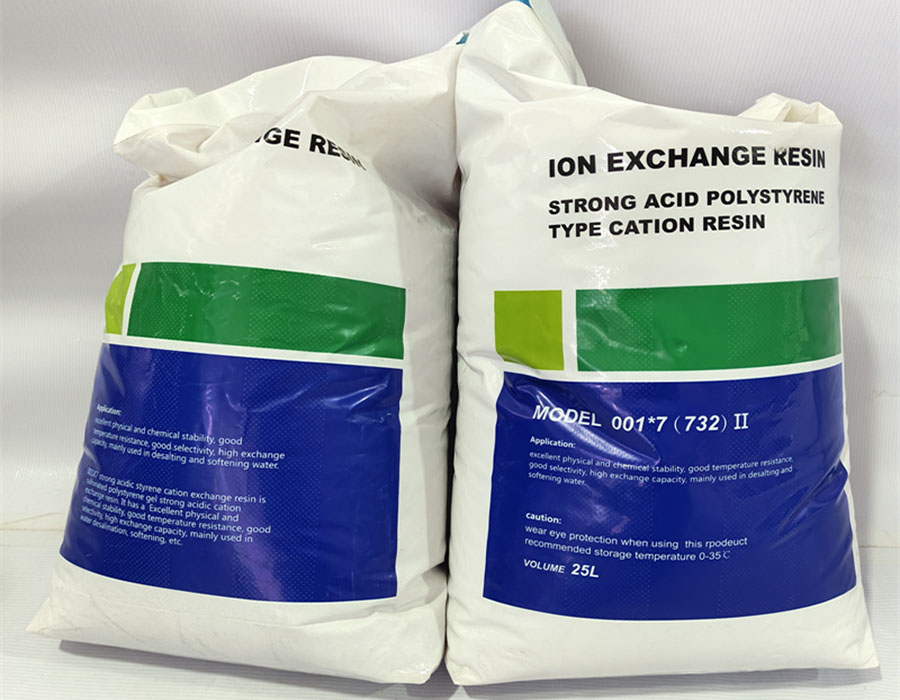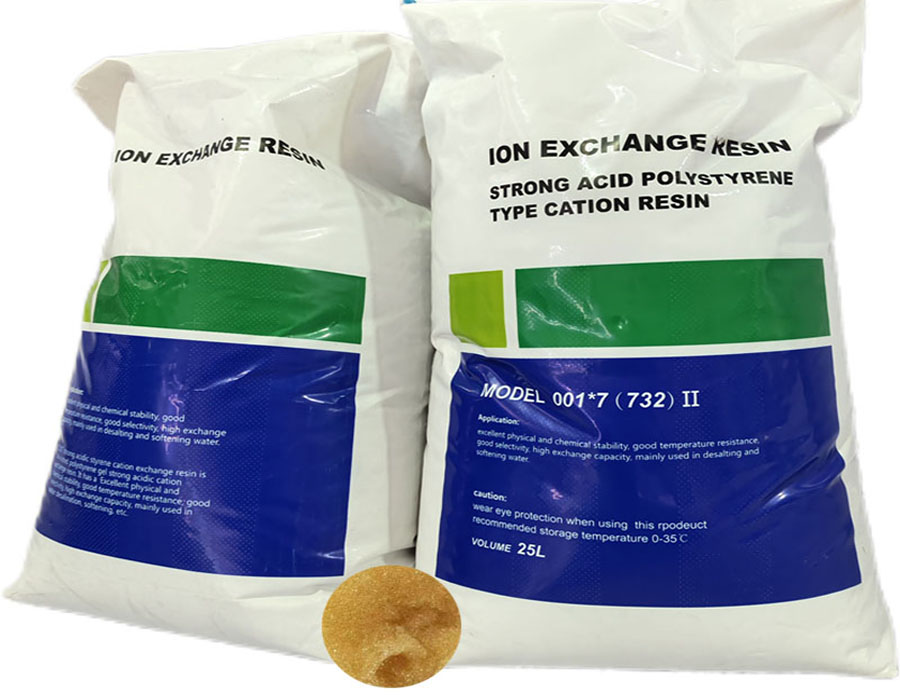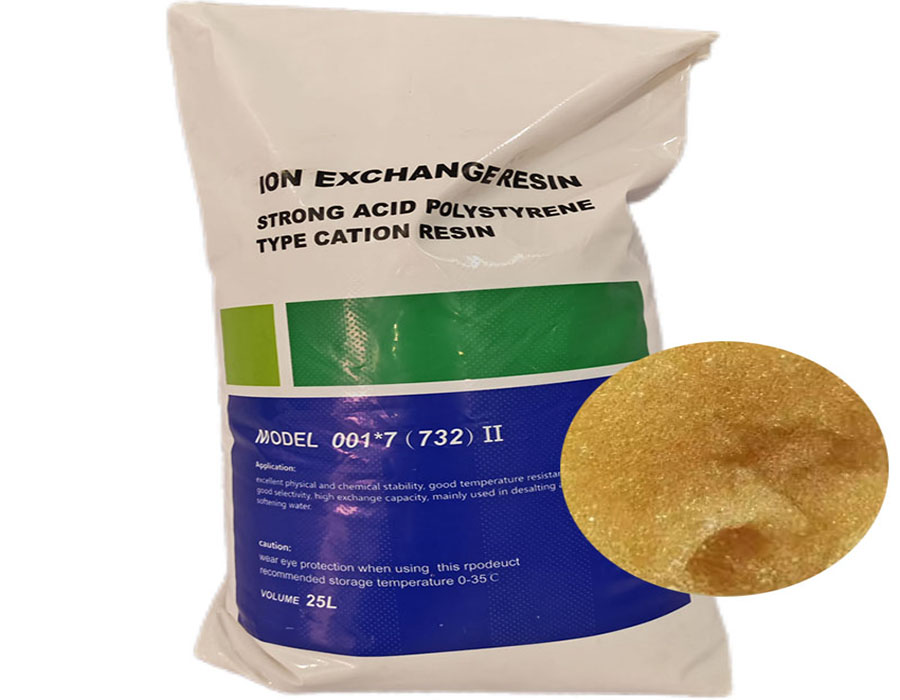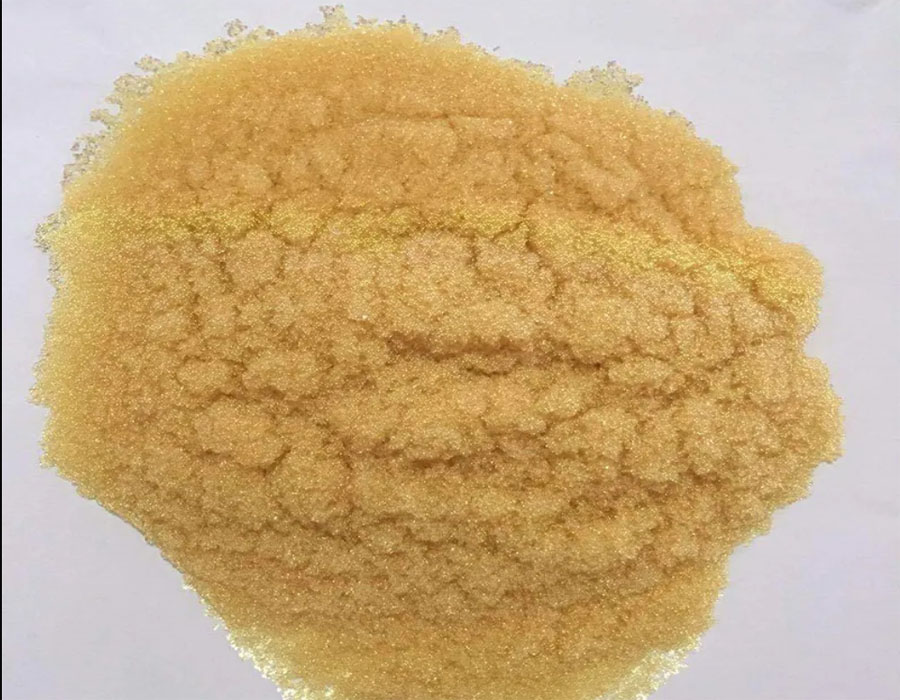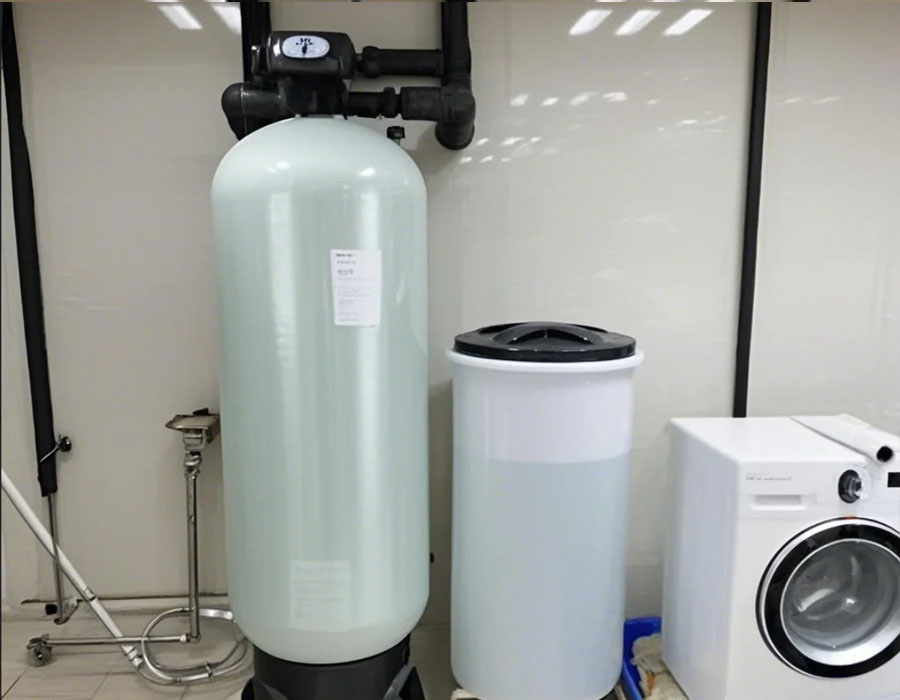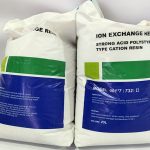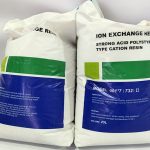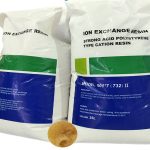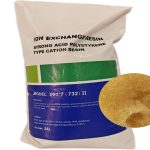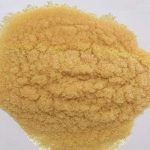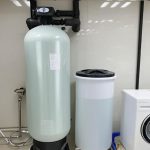One stop supplier of water treatment parts&accessories
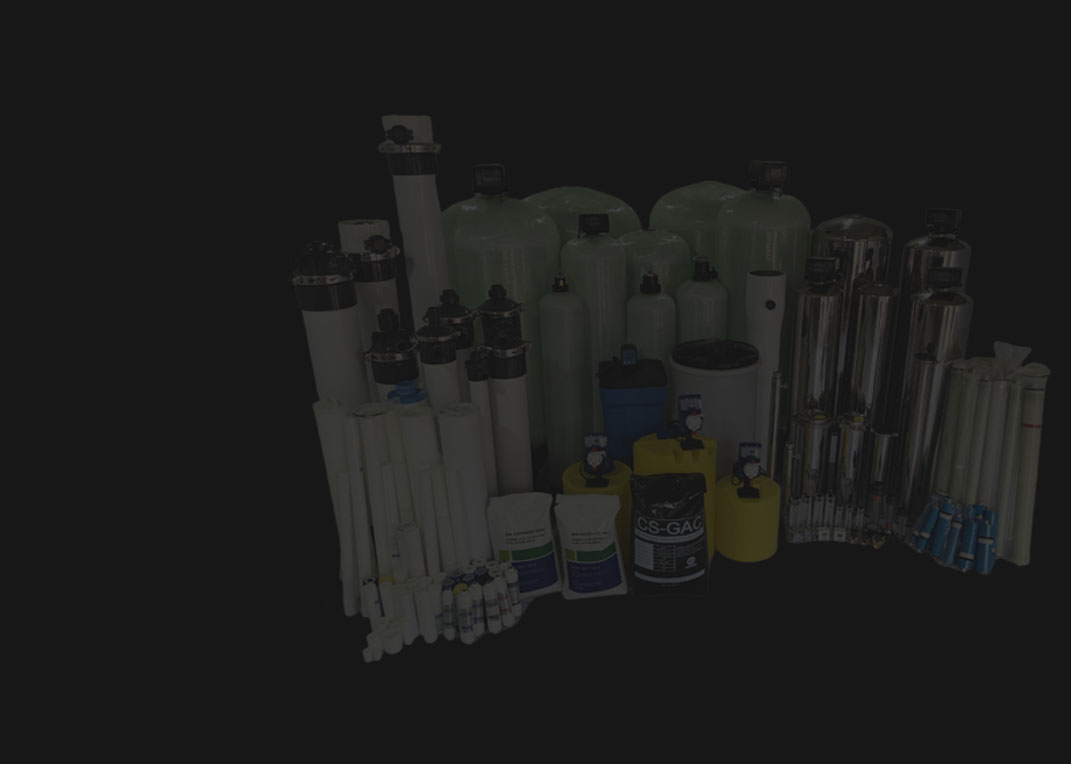
water softener resin Industrial water softening ion exchange resin
PRODUCT PARAMETERS
- Name: water softener resin
- Alias: Cation Ion exchange Water Soften Resin
- Specifications: Water Soften Resin 001*7
- Appearance: Golden spherical particles
- Polymer structure: Styrene-DVB
- Style: Gel strong acid
- Application: Water softening
- Packing: Standard Exportation Package
Description
Water softener resin is an outstanding solution for efficient calcium/magnesium removal! Notably, it is NSF certified, and its high – capacity resin beads are remarkable in reducing scale, extending appliance life, and saving energy. Moreover, it is ideal for homes, boilers, and industries. Additionally, it features easy salt regeneration, boasting an impressive 99% water softening efficiency!
Water quality is undeniably a critical factor in industrial operations. Hard water, which is rich in calcium and magnesium ions, can unfortunately cause scaling, equipment damage, and increased maintenance costs. This is precisely where softener resin comes into play. Specifically designed to tackle these challenges, it effectively ensures efficient water softening through ion – exchange technology.
In this article, we will comprehensively explore the features, benefits, and applications of softener resin. Furthermore, we’ll also provide practical insights into its usage and performance.
What is Water Softener Resin?
Softener resin is, without a doubt, a specialized material used in softening systems to remove hardness – causing ions like calcium and magnesium. Specifically, it operates through an ion exchange process, replacing these ions with sodium or potassium ions.
Notably, this resin is typically made of polystyrene beads, which are highly durable and efficient. In fact, it’s a cornerstone of industrial water treatment, thereby ensuring smooth operations and the longevity of equipment.
Key Features of Water Softener Resin
High Exchange Capacity
Undoubtedly, the resin boasts a high ion exchange capacity. As a result, it can process large volumes of hard water efficiently. Consequently, this reduces the frequency of regeneration cycles, thus saving time and resources.
Durability and Longevity
Notably, water softener resin is made from robust materials. Therefore, it can withstand harsh industrial conditions. In fact, its lifespan often exceeds several years with proper maintenance.
3. Eco-Friendly Operation
Unlike chemical treatments, this resin operates without harmful byproducts. It’s a sustainable choice for industries aiming to reduce their environmental footprint.
4. Cost-Effective Solution
By preventing scale buildup and equipment damage, the resin significantly lowers maintenance and operational costs.
Core Advantages of Using Water Softener Resin
Prevents Scaling and Corrosion
Hard water can lead to scaling in pipes and machinery. Significantly, the resin eliminates this risk, thus ensuring smooth operations.
Enhances Equipment Efficiency
Moreover, by removing hardness ions, the resin improves the efficiency of boilers, cooling towers, and other water – dependent systems.
Reduces Maintenance Costs
Consequently, fewer breakdowns and less frequent repairs translate to substantial cost savings over time.
Improves Product Quality
In addition, in industries like food and beverage or pharmaceuticals, where water quality directly impacts product standards, the resin ensures consistent, high – quality water.
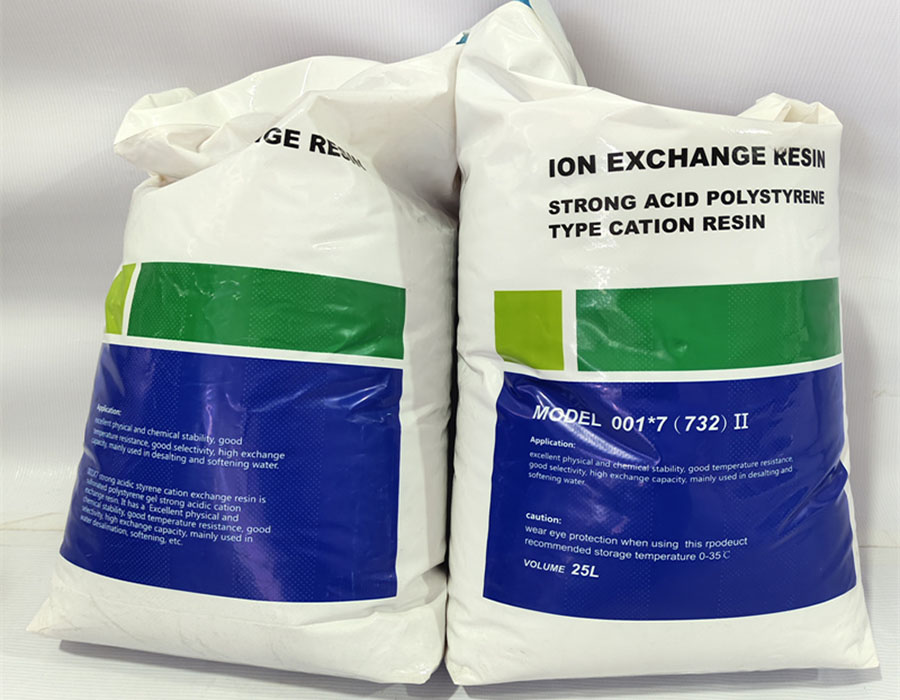
Water Softener Resin: Comprehensive Performance Parameter Sheet
Water Softener Resin Physical and Chemical Performance Indicators
| Parameter Name | Parameter Value | Explanation in English |
| Moisture Content | 45% – 53% | The percentage of water contained in the resin in its sodium form. |
| Mass Exchange Capacity | ≥4.4 mmol/g (dry) | The ion – exchange capacity per unit mass of dry resin. |
| Volume Exchange Capacity | ≥1.7 mmol/ml | The ion – exchange capacity per unit volume of the resin. |
| Wet Apparent Density | 0.77 – 0.87 g/ml | The bulk density of the resin after being fully swollen in water, used for calculating the volume and weight of the resin bed. |
| Wet True Density | 1.24 – 1.28 g/ml | The real density of the resin particles after being fully swollen in water, which is important for operations such as back – washing of the resin. |
| Range Particle Size | (0.315 – 1.25mm) ≥ 95% | The proportion of resin particles with a size within this range. |
| Lower Limit Particle Size | (<0.315mm) ≤ 1% | Controls the content of resin particles that are too small. |
| Effective Particle Size | <0.40mm | Used to evaluate the average size of resin particles, which affects the water flow through the resin and the ion – exchange efficiency. |
| Uniformity Coefficient | ≤1.6 | Reflects the uniformity of resin particle size. A smaller value indicates more uniform particles. |
Water Softener Resin Usage Reference Indicators
| Parameter Name | Parameter Value | Explanation in English |
| pH Range | 0 – 14 | Indicates that the resin can maintain stability and perform ion – exchange within a wide pH range. |
| Operating Temperature | Sodium form ≤ 120°C, Hydrogen form ≤ 100°C | Exceeding this temperature range may affect the performance and lifespan of the resin. |
| Expansion Rate during Transformation | (Na⁺ → H⁺) ≤ 10% | The volume change rate of the resin during the conversion between different ionic forms, preventing damage to the equipment due to excessive expansion. |
| Industrial Resin Bed Height | 1.0 – 3.0m | A suitable resin bed height helps to ensure full ion – exchange and uniform water flow distribution. |
| Regenerant Concentration | NaCl: 4% – 10%, HCl: 2% – 5%, H₂SO₄: 1% – 2%, 2% – 4% | Different regenerants need to be within the appropriate concentration range to effectively regenerate the resin. |
| Regenerant Dosage | NaCl (industrial): 75 – 150 Kg/m³, HCl (industrial): 40 – 100 Kg/m³, H₂SO₄ (industrial): 75 – 150 Kg/m³ | Determines the reasonable amount of regenerant to ensure the regeneration effect and economy of the resin. |
| Regenerant Flow Rate | 5 – 8 m/h | Controls the speed at which the regenerant passes through the resin bed to ensure sufficient regeneration reaction. |
| Regenerant Contact Time | 30 – 60 min | The contact time between the regenerant and the resin to allow the ion – exchange reaction to reach equilibrium. |
| Forward Wash Flow Rate | 10 – 20 m/h | The speed of water flow through the resin bed during the forward – washing stage, used to remove residual regenerant and impurities after regeneration. |
| Forward Wash Time | Approximately 30 min | Ensures that impurities and excess regenerant in the resin bed are cleaned. |
| Operating Flow Rate | 10 – 40 m/h | The speed of water flow through the resin bed during the normal water – softening process, which affects the yield and quality of softened water. |
| Working Exchange Capacity | NaCl regeneration ≥ 1000 mmol/L (wet), HCl regeneration ≥ 1350 mmol/L (wet) | Represents the ion – exchange capacity of the resin under actual working conditions. |
Applications of Water Softener Resin
1. Manufacturing Industries
From textiles to automotive, industries rely on softened water to maintain equipment and ensure product quality.
2. Power Generation
Power plants use water softener resin to prevent scaling in boilers and turbines, enhancing energy efficiency.
3. Food and Beverage
Softened water is essential for cleaning, processing, and maintaining hygiene standards in this sector.
4. Healthcare
Hospitals and laboratories use the resin to ensure pure water for medical equipment and procedures.
5. Hospitality
Hotels and resorts rely on softened water to provide guests with a comfortable experience, free from hard water issues.
How to Use Water Softener Resin
Step 1: Installation
Install the resin in a water softener system, ensuring proper placement and connection to the water supply.
Step 2: Regeneration
Over time, the resin becomes saturated with hardness ions. Regenerate it using a brine solution to restore its efficiency.
Step 3: Maintenance
Regularly check the resin for wear and tear. Replace it when its performance declines, typically after 5-10 years.
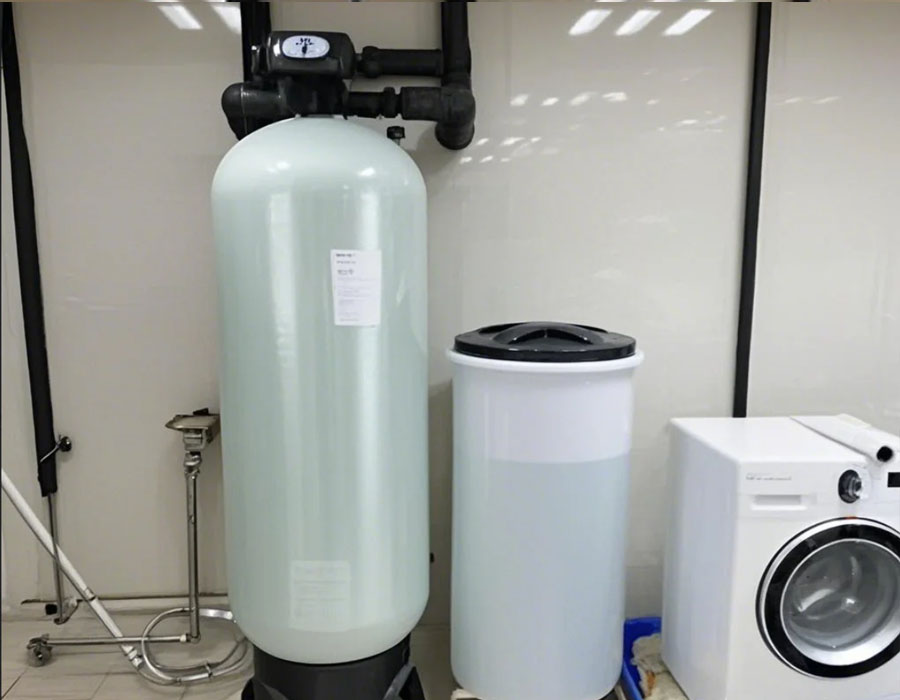
Case Study: Performance Comparison
| Parameter | Before Using Resin | After Using Resin |
|---|---|---|
| Water Hardness (ppm) | 300 | 10 |
| Scaling on Equipment | Severe | None |
| Maintenance Costs ($) | 5,000/year | 1,000/year |
| Equipment Lifespan | 5 years | 10+ years |
This table highlights the transformative impact of water softener resin on industrial operations.
Frequently Asked Questions
1. How often should I regenerate the resin?
Regeneration frequency depends on water usage and hardness levels. Typically, it’s done every 7-14 days.
2. Can I use the resin for drinking water?
Yes, but ensure the resin is food-grade and properly maintained to avoid contamination.
3. What’s the lifespan of water softener resin?
With proper care, it can last 5-10 years before needing replacement.
4. Is the resin environmentally friendly?
Absolutely. It operates without chemicals and can be regenerated multiple times, reducing waste.
FAQs
we offer a comprehensive range of products tailored to meet the diverse needs of the water purification and treatment industry. Our portfolio includes but is not limited to filters and filter media, pump systems, valves and fittings, UV sterilizers, reverse osmosis membranes, water softeners,Precision filters, filter cartridge, Flowmeter and advanced monitoring and control systems. Each product is designed with precision and engineered for durability, ensuring optimal water quality and system efficiency. Whether you’re upgrading an existing facility or building a new one, we have the solutions to fit your specific water treatment requirements.
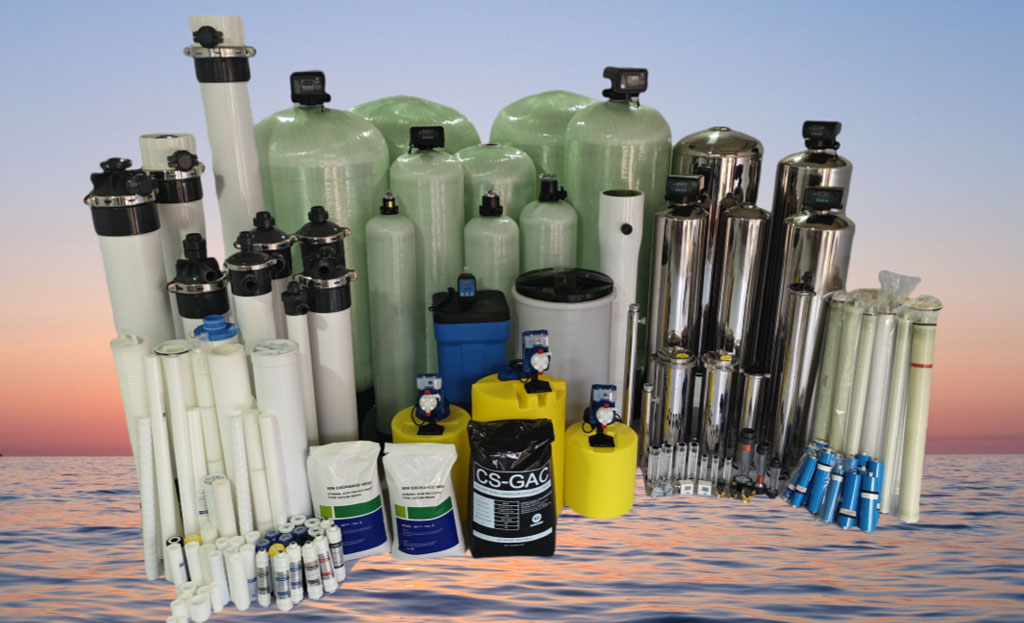
we utilize a robust logistics network to ensure timely and reliable delivery of our products worldwide. We ship through a variety of trusted channels, including air freight, ocean freight, and express couriers, depending on the urgency and destination of the shipment. Our logistics partners are carefully selected for their extensive reach, track record of on-time delivery, and commitment to safety and security. Additionally, we offer flexible shipping options to accommodate different budgets and timelines, ensuring that our customers receive their orders promptly and in perfect condition.
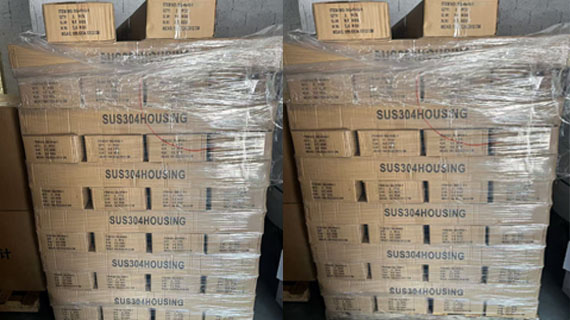
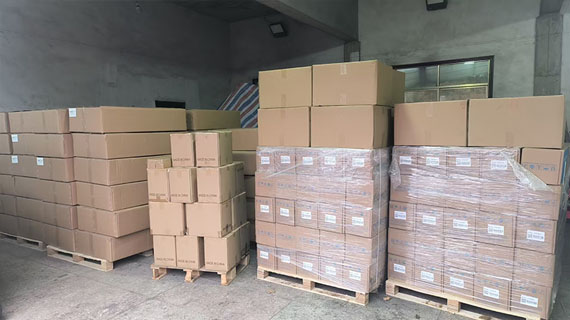




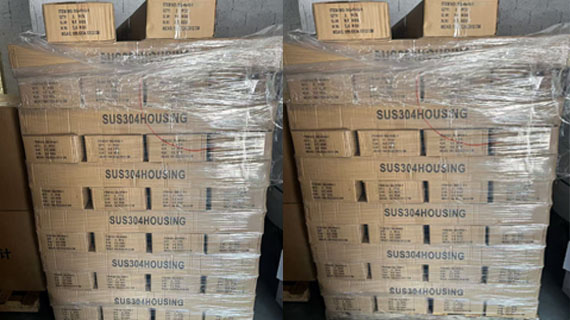
Absolutely, we can customize packaging for your water treatment accessories. We understand the unique needs of each client and offer bespoke packaging solutions that cater to your specific requirements. Whether it’s a matter of size, material, or design, we’ll work closely with you to ensure that your packaging not only protects your products but also reflects your brand identity and meets all your expectations.
Our ordering process for water treatment accessories is designed to be straightforward and efficient. First, you’ll reach out to us with your specific needs, whether it’s for standard products or customized solutions. Our team will then provide you with detailed information, including product specifications, pricing, and availability. Once you’ve decided on the items you wish to order, we’ll guide you through the ordering process, which typically involves confirming your order details, selecting your preferred payment method, and arranging for shipment. Throughout the process, our dedicated customer service team is available to assist you with any questions or concerns, ensuring a seamless and satisfying ordering experience.

we accept bank transfers, allowing you to make payments directly into our account ,and third-party payment platforms such as PayPal, Western Union, or MoneyGram.We also support payments in multiple currencies to accommodate our clients’ needs. To discuss the most suitable payment method for you, please feel free to contact our customer service team.



